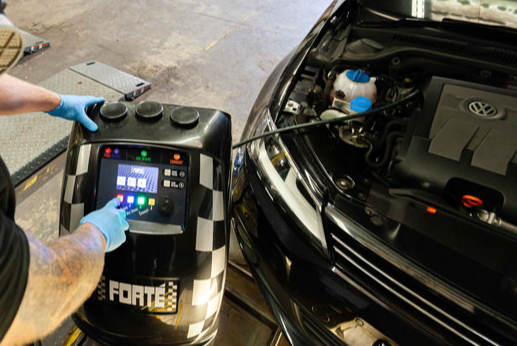Carbon buildup in engines is a real problem that can affect the performance of a car. This is especially true for older cars, as carbon buildup can be a result of years of use. Carbon cleaning services have been marketed as a solution to this problem, promising improved engine performance and fuel efficiency. However, many experts in the automotive industry have labeled these services as “snake oil,” claiming that they are unnecessary and a waste of money. In this article, we will explore the reasons why car carbon cleaning services are often considered snake oil.
Firstly, it’s essential to understand what carbon cleaning services are and how they work. Carbon cleaning services involve removing the carbon buildup from the engine’s intake valves, pistons, and cylinder heads using various chemicals or equipment. Some of the techniques used by these services include media blasting, chemical cleaning, and manual scraping. The goal is to remove the carbon deposits that build up over time and affect engine performance, fuel efficiency, and emissions.
However, the reality is that modern engines are designed to be more efficient and cleaner than their predecessors. As a result, carbon buildup is less of an issue in newer cars. In fact, many newer cars have systems built-in that reduce carbon buildup, such as direct fuel injection and exhaust gas recirculation. These systems work by ensuring that fuel is delivered directly to the combustion chamber, reducing the likelihood of carbon buildup on the intake valves. Similarly, exhaust gas recirculation reduces the amount of carbon that is produced by the engine.
Furthermore, most car manufacturers do not recommend carbon cleaning services as part of their routine maintenance. The reason for this is that modern engines are designed to be more efficient and cleaner, and therefore, carbon buildup is less of an issue. Additionally, many manufacturers have implemented maintenance schedules that recommend spark plug and air filter changes, which can help prevent carbon buildup in the engine.
Another reason why carbon cleaning services are considered snake oil is that there is little evidence to support their effectiveness. While some car owners report an improvement in engine performance and fuel efficiency after a carbon cleaning service, it’s challenging to determine whether this is due to the service or other factors. In many cases, the perceived benefits of a carbon cleaning service may be due to other factors, such as a change in driving habits or a repair of another issue in the engine.
Moreover, many of the chemicals used in carbon cleaning services can be harmful to the environment and may damage the engine if not used correctly. Some of the chemicals used by these services can cause damage to engine components such as seals, gaskets, and O-rings, leading to oil leaks and other problems.
In conclusion, while carbon buildup in engines is a real problem, carbon cleaning services are often marketed as a solution to a problem that may not exist. Modern engines are designed to be more efficient and cleaner, and therefore, carbon buildup is less of an issue. Additionally, many car manufacturers do not recommend carbon cleaning services as part of their routine maintenance, and there is little evidence to support their effectiveness. Finally, many of the chemicals used in these services can be harmful to the environment and may damage the engine if not used correctly. Therefore, car carbon cleaning services are often considered snake oil and a waste of money. It’s essential to focus on routine maintenance recommended by the car manufacturer and only consider carbon cleaning services when necessary.





